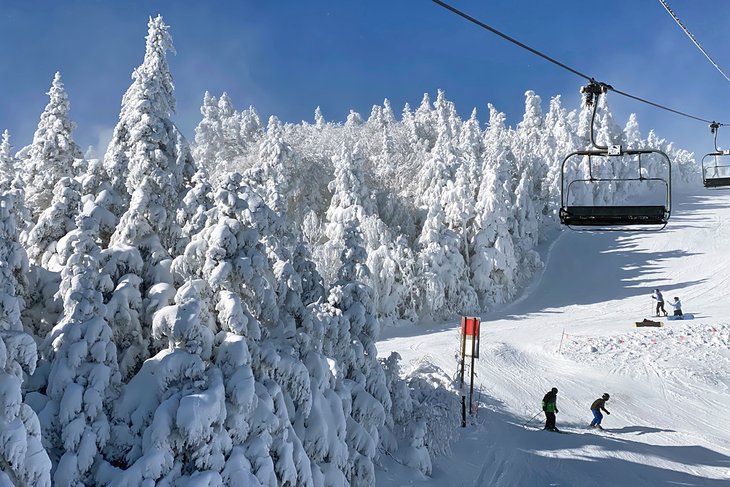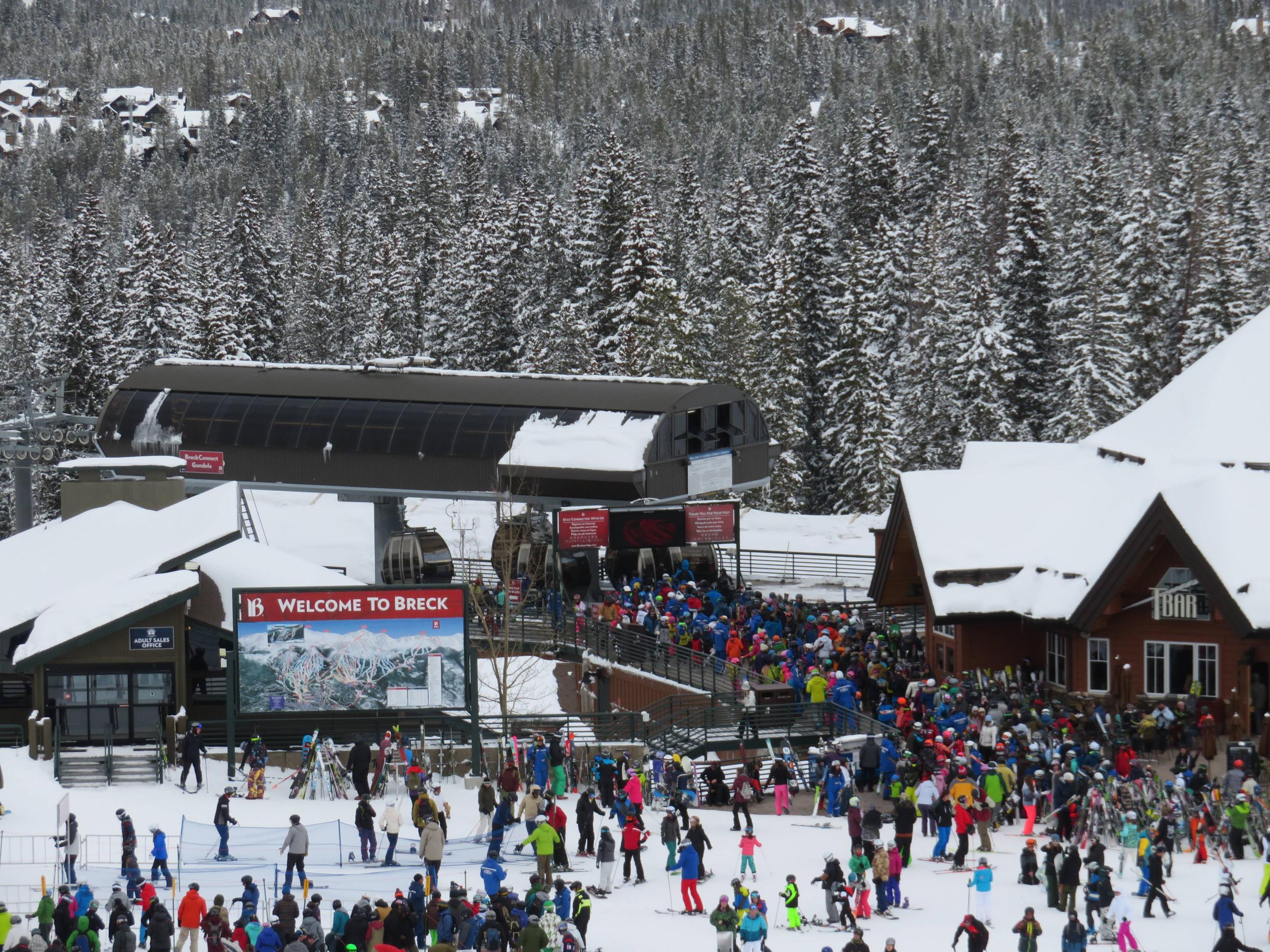
Older cross country skis tend to be a bit longer. However, the latest models are shorter. This makes them easier to handle for beginners, and they don't lose as much of the glide as a longer cross country ski does.
As a rule of thumb, beginners will prefer shorter skis than experienced skiers. You should consider your ability and the type or snow that you will be skiing. If you plan to ski often, you may want to get bigger skis, as their stiffness will help you to grip well. However, skis with wider shapes will offer more stability for those who plan on skiing in more challenging conditions.
Shorter, shaped cross country skis are available, and they are becoming increasingly popular. These skis have a length of 147cm, which is less than two-feet. However, they are less stable than longer skis and have a limited flexibility. They are versatile and easier to use.

Cross country skis can both be used by advanced and novice skiers. There are many options for skis, so you can choose the one that best suits your needs. It is important that you choose the right ski for your needs.
Skis that have a metal edge are good for off-track skiing, as the metal helps to provide extra traction in icy situations. Metal edges offer more stability. In addition, they are less likely to slip and drag, so they are especially useful for backcountry skiing.
There are many styles of classic crosscountry skis. There are many options for choosing the right skis for you. The Atomic Redster C9 Carbon is an example of this. It has different flex levels, depending on the user. This skier is light or heavy, and has excellent edge control.
The classic cross-country ski is made of wood and has a narrow profile. These skis have no sticky wax and have a built–in grip pattern. Those who are more aggressive can use racing cross country skis, which have a stiffer camber profile and are faster.

There are many different skis to choose from, but the best all-around cross country skis are a bit hard to find. Cross country skiers at all levels can enjoy the Fischer Twin Skin Pro Medium XC. There are two options: a waxed model or a no-wax option, depending on which style you prefer.
Even though shorter skis are sometimes more difficult than usual, they are becoming more prevalent. Local ski shops are a great place to start looking. A majority of shops have a demo section where you can see and test various models. To find the right one for you, try several sizes and types.
FAQ
What documents should you keep with me when I travel?
Keep copies of important documents handy for when you're on the move. Also, keep copies of your passport, driver’s licence, and other identification cards, along with any credit card information, in case you need them, to make it easy to access when you travel.
It is a good idea if you have a photocopy your passport so that it can be used in the event of a need.
Make sure to keep a copy of your itinerary and any reservations. These will help you to remember where you are and what you want to see.
Keep a copy of the flight ticket and details for your hotel reservations. You'll be able contact someone back home in case you need them.
Also, don't leave valuables unattended. Make sure you have a place to store your valuables, such as a money belt or in your luggage.
Avoid losing valuable items by making sure your luggage is checked before you depart.
Remember: It's safer not to plan too much than to keep everything simple.
Enjoy the ride and just relax.
What should I do if I want to buy travel insurance
Travel insurance is essential for anyone who plans to go on an adventure. You should ensure that you have coverage for all types and forms of adventure sports.
You should make sure you have insurance if you ski. You should also look into getting coverage for things like theft, loss, and damage.
You should also consider buying cover for cancellation. You can cancel your holiday without incurring any penalty.
Also, make sure you ask for insurance for emergency evacuation. This includes being taken off the mountain in case of an avalanche or other natural disaster.
What is the first thing to do after arriving at your travel destination?
A plan should be prepared for each step of your journey. It will let you know what to expect, and where to go next.
To avoid missing anything, you need to plan ahead.
For example, if you're going to be visiting a city for more than one day, you should research which museums, parks, and landmarks you'd like to visit.
Also, you may want to look into getting a map of the area and reading up on the region's history.
What should you take on vacation?
Know what you want to do while on holiday. It's not just about packing clothes. Also, think about where and how long your stay there.
The first thing you need to do is think about what types of activities are most appealing to you. For example, if you are going to an exotic destination, then you may want to try scuba diving. If you plan on staying longer, you may want to attend local festivals.
Tell your loved ones if there are any health concerns so they can plan for you.
These are the things that you must remember when traveling.
When traveling, you will often find yourself in situations without the ability to make informed decisions. So be prepared to improvise.
It is possible to be stuck anywhere for hours, days or even weeks. You can plan ahead to ensure you have water, food, shelter, and somewhere to sleep. But if you haven't, you may have to improvise.
In these situations, you will probably need to rely upon what you know best. It means you have to be able to quickly make decisions based upon your experience and instinct.
Sometimes you just can't make a choice. Sometimes, however, you will have to make do with what you have. You'll need to adapt quickly to these situations.
The key to success is to stay calm, remain focused and act decisively. Don't panic. Instead, be calm and focus on what you can do.
You can choose which direction you want to go if you're lost among the woods. Or if you're hungry, you can eat berries or mushrooms. You can also drink rainwater and melt snow if you feel thirsty.
Or if you're tired, you can rest. You can wrap up if you're cold. You can wear a sweater if it's cold. No matter what you do, it will make you feel better to stay positive.
Statistics
- Case in point: the private island of Ilha Caldeira, less than seven miles off the coast as part of the Primeiras and Segundas Archipelago, is located within the marine-protected area with 20 percent of the country's intact living coral. (travelandleisure.com)
- That's an 18% jump from 2019, the previous record year. (travelandleisure.com)
- Between the ages of 11 and 13, kids, or tweens, will likely want some autonomy but also need boundaries. (travelandleisure.com)
- Alcoholic beverages with more than 24% but not more than 70% alcohol are limited in checked bags to 5 liters (1.3 gallons) per passenger and must be in unopened retail packaging. (tsa.gov)
- According to Maori legends, this park holds 14 fjords that were all carved by a giant stonemason with an adze. (busytourist.com)
External Links
How To
Which are the best travel tips and tricks for beginners?
You can travel is an exciting adventure, but there's a lot you need to be aware of to make sure you have a safe and enjoyable journey.
Here are some basic tips to help you plan your next vacation.
-
Book early. The price of a booking is lower if it's made in advance. You'll also save money by avoiding last-minute deals offered by hotels and airlines.
-
Stay-at-budget accommodations. Cheap hotels are more affordable. These hotels are often located close to shopping and public transportation.
-
Don't overpack. Make sure to pack light. Make sure you have enough space for souvenirs and other gifts. Bring clothes that fit well and won't wrinkle easily.
-
Use common sense. Traveling alone? Don't go out at night. Avoid dangerous neighborhoods and areas with high levels of crime.
-
Take precautions against theft. Keep valuables safe from prying eyes. Don't leave anything valuable behind when you go swimming.
-
Cash is a dangerous thing. Tourists are often targeted by thieves in foreign cities. Keep your money safe and use ATMs only in banks or secured locations.
-
You need to know what you are doing. Prior to booking a room in a hotel, make sure you understand how public transport works. You can find out more about popular attractions, restaurants, or other sights.
-
Read up on safety. Before you travel, learn about the culture, laws, and customs of your destination.
-
Have fun. No matter what happens, enjoy yourself. It's worthwhile.